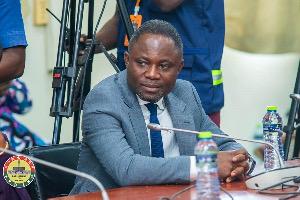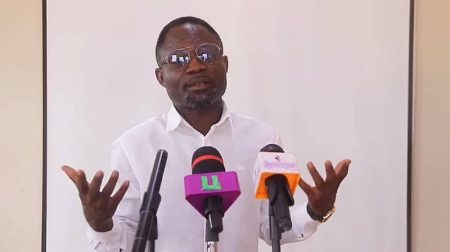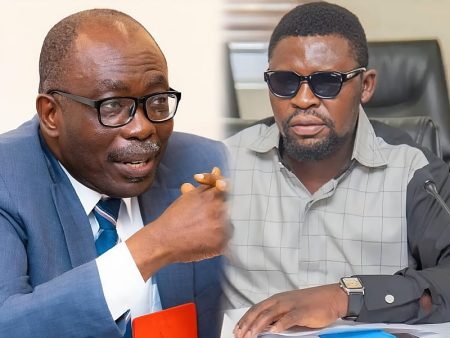The Minister for Health, Kwabena Mintah Akandoh, painted a stark picture of the state of Ghana’s healthcare infrastructure upon the Mahama administration’s assumption of office. He described a widespread deterioration of health facilities, characterized by dilapidated buildings and malfunctioning or broken-down medical equipment. This dire situation, he explained, has significantly hampered healthcare delivery across the nation and presented the ministry with a formidable backlog of challenges. The lack of functional equipment and suitable facilities has created a critical bottleneck in providing timely and effective medical care to the Ghanaian population, impacting both the quality of care and the overall health outcomes.
Mr. Akandoh emphasized the government’s immediate response to this crisis, highlighting efforts to revitalize key healthcare institutions. He cited the ongoing upgrades at the Komfo Anokye Teaching Hospital Maternity and Children’s Block as a prime example. Furthermore, he outlined the allocation of essential equipment, including ventilators and oxygen plants, to vital hospitals such as Korle Bu, Cape Coast Teaching Hospital, and LEKMA Hospital. These investments, he stressed, are crucial for improving emergency response capabilities and ensuring the availability of life-saving resources within these facilities. The provision of such critical equipment demonstrates a commitment to strengthening the capacity of these hospitals to handle complex medical cases and improve patient survival rates.
Despite these initial efforts, the Minister acknowledged the persistence of significant gaps in the healthcare system. He pointed to the ongoing need for renovations, the acquisition of new equipment, and the establishment of reliable maintenance systems across numerous facilities. Recognizing the magnitude of the task, Mr. Akandoh articulated the government’s commitment to addressing these issues through a combination of domestic investment and international partnerships, particularly emphasizing the potential of Public-Private Partnerships (PPPs) to leverage external resources and expertise. This multifaceted approach aims to secure the sustainable funding and technical support necessary to modernize Ghana’s healthcare infrastructure and ensure its long-term viability.
The Minister further revealed a concerning situation regarding the highly publicized Agenda 111 initiative, a flagship program intended to construct new hospitals across the country. Despite a substantial investment of $344 million, Mr. Akandoh disclosed that not a single hospital had been completed and operationalized under the program by the time the new administration took office. This revelation raised serious questions about the project’s management and effectiveness, particularly given the significant financial commitment. The lack of tangible progress despite substantial funding suggests potential inefficiencies or mismanagement that require thorough investigation to ensure accountability and prevent future occurrences.
Furthermore, the Minister revealed the existence of over one billion Ghana cedis in arrears related to the Agenda 111 project, inherited by the current administration. This substantial debt further complicates the financial landscape for the Ministry of Health, adding another layer of difficulty to their efforts to address the existing infrastructural deficits and operational challenges. The inherited debt not only strains the ministry’s budget but also necessitates a re-evaluation of the project’s feasibility and a prioritization of resources to manage existing liabilities while simultaneously pursuing essential improvements to the healthcare system.
In summary, Mr. Akandoh’s address painted a challenging picture of Ghana’s healthcare landscape, marked by inherited infrastructure deficiencies, equipment shortages, and a stalled flagship hospital construction project burdened by significant debt. While acknowledging the government’s initial efforts to address these challenges, he underscored the magnitude of the task ahead and the need for sustained investment, strategic partnerships, and efficient resource management to achieve meaningful and sustainable improvements in healthcare delivery across the nation. His transparency in disclosing these challenges signals a commitment to accountability and sets the stage for a renewed focus on strengthening Ghana’s healthcare system, though the path to achieving this goal clearly remains fraught with obstacles.














